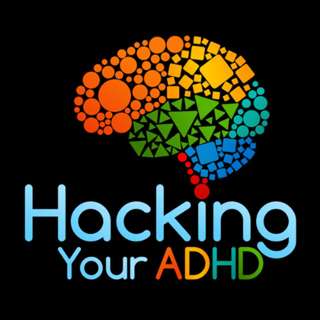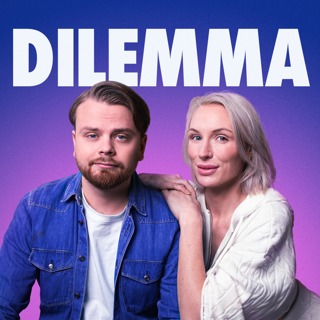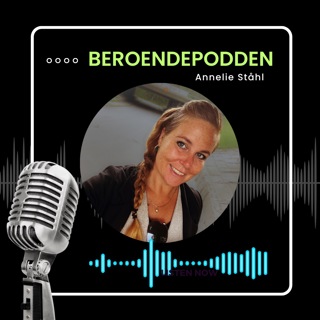
How to Make your Smart Phone ADHD Friendly (Part 1)
I've been carrying around a smartphone in my pocket for more than 10 years - I started off with the first iPhone and have since gone over to Android, dabbled with the Windows Phones for a few years and then ended back up with an iPhone again. Through my years with my phone I've learned that it can be a great asset and help me with a number of my ADHD difficulties; however, I've also felt the dark side of the phone as well. Games, social media, email and all those notifications. ADHD makes it really easy for us to get off track so we want to be making sure that we're not letting our phones dictate our next actions. Through trial and error phone designers have been making it harder and harder for us to put down our phone. Since we have ADHD this means that it is almost too easy for us to get distracted when we pop open our phone to just check the time. The screen lights up and suddenly we're hit with a hundred different ways our attention should go. This week we'll be focusing on ways to set up your phone to be less distracting and we're going to work on setting up our phones intentionally to make sure that we're paying attention to what apps we have on our phone and where those apps are located. We'll also be looking at other ways to reduce the constant stream of distractions that our phones can produce. Find the full show notes at: HackingYourADHD.com/ADHDPhone This Episode's Top Tips 1. Purge any apps that you don't need on your phone - both unused apps and also apps that pull you in too much. 2. Organize your apps so that your most useful apps are easy to open and your distracting apps are hidden. 3. Turn off most of your notifications and make use of your Do Not Disturb feature. 4. Check out your phone's screentime feature and set some sensible restrictions on how much time you are spending on your phone.
21 Jan 202017min

Tweaking Your Habits for Better Results
Find the full show note at HackingYourADHD.com/habits This week we're going to be exploring the power of habit and how small changes to our routines can have a big impact. One of the easiest ways we can help our ADHD is by working on routines and habits. It's easy to let our default habits run our lives but when we consciously choose what habits we actually want to cultivate we aren't hamstringing ourselves. In this episode we'll be learning why we don't need to use discipline nearly as much as we think, the importance of sequencing in our habits and how we can make tweaks in those sequences so that we can change our habits to the ones we actually want. Today's Top Tips Don't rely on discipline, instead use your habits to help you navigate the hard stuff. Our habits are so ingrained that we don't always realize what we're doing while we're doing them. Our habits follow the path of least resistance - if you want to change a bad habit, add resistance. If you want to form a new habit, reduce the resistance to that habit. You can automate processes in your habit sequences so that you aren't relying on discipline.
13 Jan 202013min

Breaking Down The ONE Thing
Find the full show notes at HackingYourADHD.com/TheONEThing In this week's episode, I am going to be going over the book The ONE Thing by Gary Keller and Jay Papasan - I was introduced to this book by Eric Tivers through the ADHD reWired Coaching and Accountability groups. I can't remember if it was required reading or just strongly encouraged when I took the groups, but the messages in this book were key to getting through the coaching groups. My first reading of the book was on audiobook and since then I've listened to it three more and read the physical version of the book twice. The subtitle of the book is, "The surprisingly simple truth behind extraordinary results" - and as I've mentioned before, just because something is simple doesn't make it easy. Each reading has helped me understand the concepts a little bit better and I was always able to pick up a few new things. Today I'm going to be going over the "surprisingly simple truth" in the book and discussing how we can better apply it for our ADHD brains. Today's Top Tips Use the focusing question to help you determine your one thing - the focusing question again is: "What's the ONE Thing that you can do such by doing it that everything else is easier or unnecessary?" Change your thinking and value your time by saying "no" more and time blocking time for your ONE Thing You can have a ONE Thing for each of your life domains, but they should all be working toward a common purpose If you liked this episode I'd recommend you check out the book the ONE Thing and read through it on your own - I skimmed a lot of parts for this episode so I'm sure you could get a lot more out of it. You can find a link to the book on the show notes page.
6 Jan 202015min

Dear ADHD
Find show notes for this episode at HackingYourADHD.Com/DearADHD Thanks for joining me for the very last episode of 2019 - in this episode, I'm writing a letter to my ADHD. This is an exercise I got from Eric Tiver's ADHD reWired Coaching and Accountability groups. I'll be honest, I wasn't all that keen on writing a letter to my ADHD when I first heard about the exercise, but it was surprisingly refreshing to address that part of myself. Since my first letter to my ADHD I've tried to write another one about four times a year. When I write these letters it gives me an excellent chance to check in with how my relationship with my ADHD is going. Sometimes it's going really well, while other times I've found myself to be really struggling. If you'd like to write your own letter to your ADHD, just set a timer for 10-15 minutes and write whatever feels right to say to your ADHD. There's no wrong way to write your letter - and don't worry, I've heard a number of these that start with Dear ADHD, F - you. The great part about doing this exercise is that you get a nice record of how your relationship with ADHD is going - I can look back and see how I was doing mentally when I last checked in.
30 Dec 20198min

How to Plan Your 2020 Without Getting Overwhelmed
Be sure to check out the full show notes at: HackingYourADHD.com/planning2020 Today we're going to be working on planning out our 2020. If you haven't given much thought to planning your year before I think you'll get a lot out of this episode - planning is one of those things that we sometimes think doesn't play well with ADHD, but I've learned that planning is actually one of the most effective ways to manage my ADHD. We're always going to be impulsive and that's not a bad thing but sometimes we want to want to rein that in and our best chance at reining in impulsivity is forethought. In our session today we're going to be going over how to set goals without making them too challenging, figuring out where our focus is going to be next year, updating our calendars with the most important stuff first (you might be surprised with what that is) and then going over why we want to be doing our most important goals first. This Episode’s Top Tips Find your Goldilocks Zone of Challenge for Goal Setting Examine your life domains and choose one to focus on this year Re-write your goals from outcome based goals into process goals Once you have set dates scheduled into your calendar, schedule out your vacation and planning time before anything else Plan to do your 2-3 most important goals in the beginning of the year
23 Dec 201917min

Looking Back on 2019 for a Great 2020
Today we're going to be walking through the process of how to conduct an end of year review by letting you in while I went through my own review. Head over to the show notes page to grab a copy of the Review Your Year PDF that I use in this episode: HackingYourADHD.com/2019Review Since I've started doing yearly reviews, I've realized that I'm pretty bad at looking back. Often I feel like I'm just spinning my wheels, but it turns out that it's just that my rearview mirror is broken. The problem is that when I look back I tend to only remember a small fraction of what went on over the year. I mean even when I've tried doing a weekly review I find that I can't actually accurately remember what went on that week. But that doesn't mean that we can't do something to help jog our memories. This Episode’s Top Tips List out your goals for 2019 and see which ones you completed (and it's okay if you didn't get them all - I didn't hit many of mine this year) Go through your calendar week by week and find all the things that you've forgotten about over the year Separate everything you did this year into their various life domains so you can see where you've spent most of your time Using all the information you gathered, spend some time writing and reflecting on how your year went Keep all this information handy for next week when we start planning our year And be sure to connect with me on Facebook, Instagram, and Twitter to let me know what your top takeaway was from this episode.
9 Dec 201913min

How To Make Time For The Important Stuff
Let me ask you, what's the most important thing on your to-do list? What the thing that if you did it would make you satisfied with what you accomplished today? Sometimes we've got a clear picture of what our most important thing we've got to do is - usually it's something that's due that day - maybe even something that was due, yesterday. But we can't always rely on urgency to be our guide for prioritization. If you're struggling to figure out what's the most important thing to do, you're not alone. Picking out the tasks that are going to make the biggest difference is a hard thing to do and something that we're kind of just expected to understand - yet often there's no clear reason why doing task A is better than doing task B. As we are approaching the end of the year I've been thinking about what I want to do next year and what things are going to make the most difference in my life. So today I'm going to be exploring how we can determine what those most important tasks are and how we can make them a priority. Check out the full show notes and episode transcript at: HackingYourADHD.com/Priorities This Episode’s Top Tips To really get the most out of setting your priorities you've first got to understand what your values are You can use the Eisenhower Priority Matrix to separate your tasks into Important and Urgent, Important but not Urgent, Urgent but Not Important and Not Important and Not Urgent Large projects should be broken down into their component parts, once they are broken down look for tasks that are bottle necks or that will make other tasks easier to complete - those should become your priorities
2 Dec 201918min

Prioritizing Your Needs For a Better Holiday Season
We all picture different things when we think about the holidays. Some people think about family and food, others think about putting up all those sparking lights and some people think about the shopping - but one thing we all probably think about is all the things we have to do. Find the full show notes at HackingYourADHD.com/podcast/holiday This Episode's Top Tips Pick and choose your events - let your mantra become "I'll have to check my calendar" Prioritize self-care by adding it to your calendar Have escape routes planned for events that might overwhelm you - identify your co-conspirators to get you out of the worst situations Your best weapon against impulsiveness is forethought - knowing when you are most impulsive let's you come up with strategies to curb that impulsiveness Be kind to yourself and cut yourself some slack
25 Nov 20197min





















